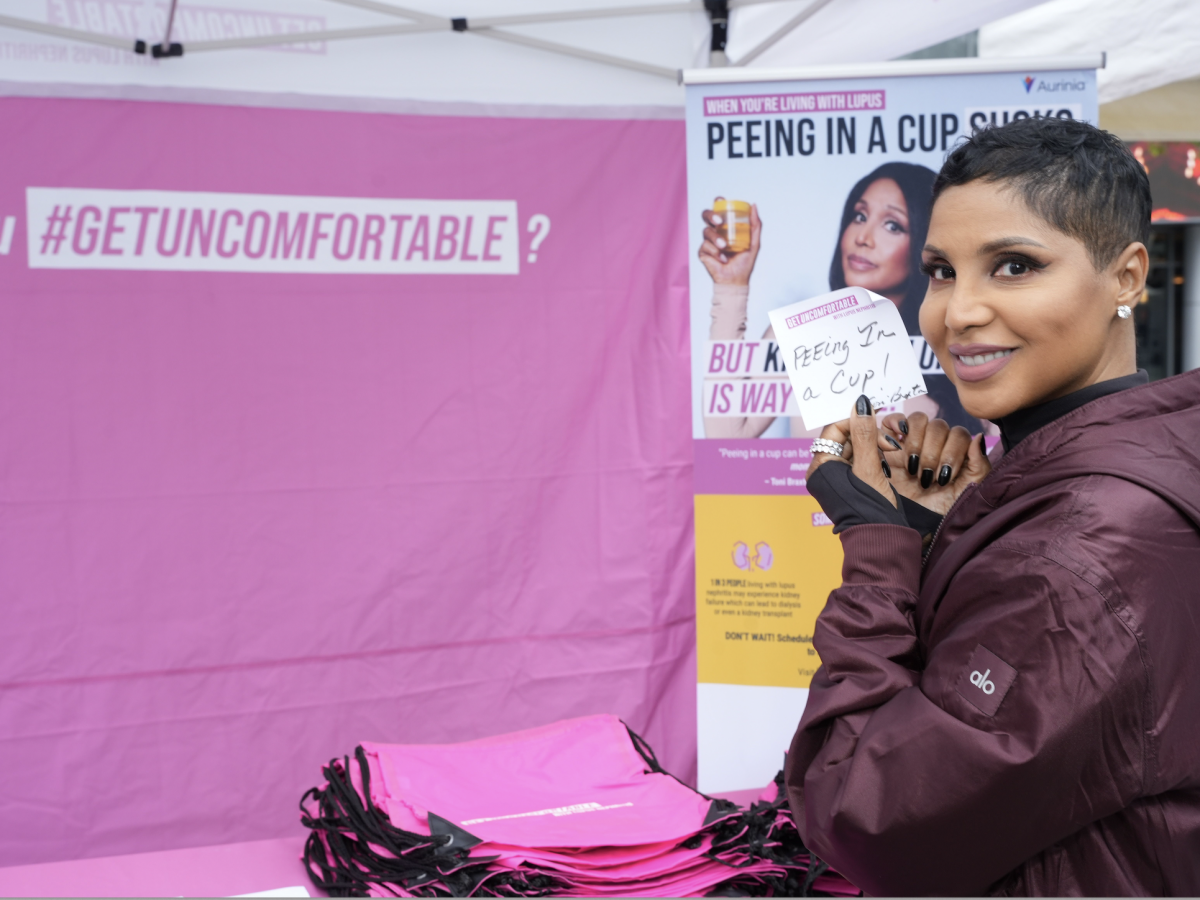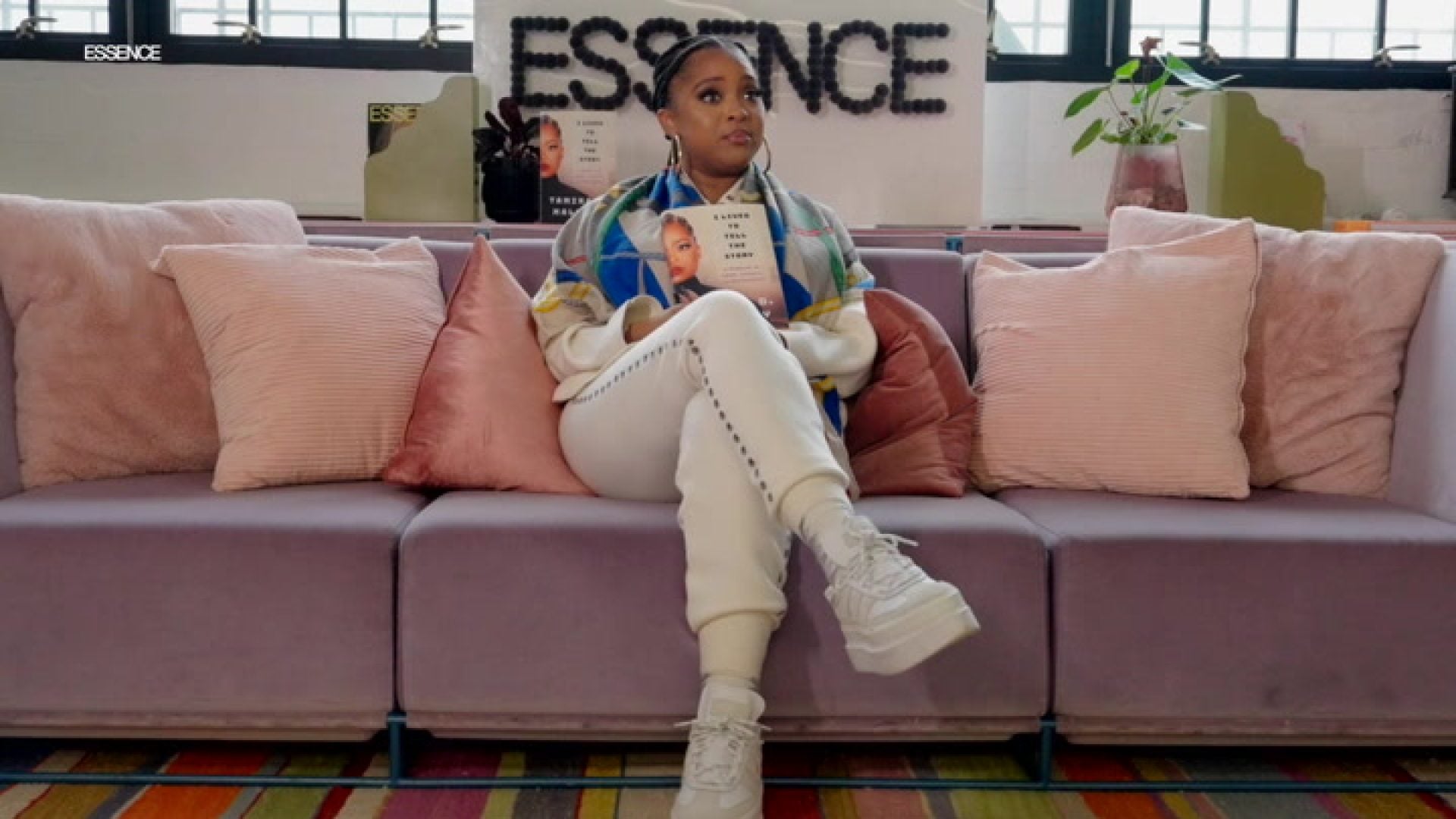
Toni Braxton is undoubtedly a living legend. Throughout her decades-long career, she’s received notable accolades across the entertainment industry, her peers’ respect, and her fans’ undying support. In recent years, Braxton has also become an advocate for lupus, an autoimmune disease. Having lived with systemic lupus erythematosus (SLE) for over 15 years, she has the experience and insight to help others suffering from the disease, no matter how turbulent their journeys. “I’m comfortable being vulnerable now about the disease, but before, I wasn’t. I was told not to tell anyone I had lupus. I was shamed. People told me you’ll never work again,” Braxton tells ESSENCE.
Although the negative comments made her want to hide not only herself but also her illness, she eventually learned to embrace it through speaking her truth. “I learned to embrace it. Once I started talking about having lupus, I found that it empowered me, and I wasn’t ashamed anymore, and I decided to advocate for myself and others,” she says.
Fast forward to 2023, and the multi-hyphenate performer decided to partner with Aurinia as part of the Get Uncomfortable campaign to encourage people with lupus and lupus nephritis to talk to their doctor about kidney health and get their regular urine and blood tests. Lupus can affect many parts of the body, including the joints, skin, brain, heart, lungs, and kidneys. When it affects the kidneys, it’s called lupus nephritis. The symptoms of lupus nephritis aren’t always noticeable, but they are serious and often referred to as a silent disease.
Although most are familiar with lupus, some don’t know much about lupus nephritis, a common and severe complication of lupus. Inflammation from lupus nephritis can cause permanent kidney damage and even kidney failure, which may require dialysis or a kidney transplant. When the kidneys can’t function properly, that can also lead to other serious health issues, including high blood pressure and an increased risk of heart attacks and stroke, which is why it’s so important to catch lupus nephritis early, as diagnosis and treatment may help prevent irreversible kidney damage and other serious complications.
The Get Uncomfortable campaign notes that 1 in 3 people with lupus nephritis may experience kidney failure. So, it’s best practice to receive routine testing (via urine or blood) at least every three months to help doctors closely monitor kidney health. Lupus nephritis impacts women of color the most. This is why Braxton encourages women who look like her and beyond to advocate for their health and not be afraid to have honest conversations with our doctors, even if routine testing is uncomfortable. “Getting routine tests is not my favorite thing. Peeing in a cup and getting poked with needles can be uncomfortable, but I’ve learned to embrace these uncomfortable moments because I know they could save my life,” she shares.
Braxton is also urging others to be transparent with their healthcare providers about their symptoms, as she wasn’t initially open with hers. “I wasn’t open with my doctors right away. I dismissed some of my symptoms. We all do. We say we’re tired, stressed, or working too hard. My urine looked all wrong—it was foamy like beer—but I didn’t mention it,” she reflects.
Throughout her journey with lupus, she learned that having difficult conversations with yourself is part of embracing being uncomfortable and existing outside of your comfort zone. “I learned being uncomfortable means to have an uncomfortable conversation with myself first. Sometimes, we tend to make excuses to avoid going to appointments. We take the emphasis off ourselves often, especially as women,” she states.
Braxton adds, “I’ve learned I have to be honest with myself, and then I can have that uncomfortable conversation with my doctor, but if I’m not starting with me first, that’s just talk and excuses.”
As lupus is known to be a silent disease and doesn’t have a “look” to it, according to Braxton, taking time to get tested often can extend people’s lives who are living with it, and can be empowering to take ownership of their health. “That’s why I say getting those tested often as much as your healthcare provider says because it can be silent. You can have no symptoms until it’s already advanced. The only way you can monitor it is by getting these regular checkups. It’s okay to be kind to yourself. We forget that sometimes women, especially women of color, we forget we can be kind to ourselves, and one way to do that is to stay on top of your health.”
Braxton knows something about addressing underlying health issues after putting off necessary testing. This time, last year, she decided to see her doctors and get tested after pangs in her chest, and to her surprise, she needed a coronary stent due to one of her main coronary arteries being 80% blocked. Braxton later revealed that she had put off some routine urine and blood tests before experiencing chest pains, thinking she would be “fine.” Her doctors told her that she wouldn’t have survived if she had a heart attack. After a potential brush with death, the singer is making it her mission to help educate others about the importance of routine testing. “Last year was a tough moment for me. I felt that I was lucky to survive. Doctors are scientific, but my doctor hugged me and said, ‘Sometimes we get lucky.’ I didn’t know what he meant because I was still in anesthesia, but I found out later it was because I would have had a massive heart attack and would not have survived,” she shares.







Braxton continues, “My family helped me a lot. I just lost my sister Tracy, so I was feeling very sad. I didn’t know how to deal with that. Luckily, I went to the doctor when I felt the pain in my chest because I was not going to go, but I am glad I did. That’s why being an advocate for me is so important. Like no, go to the doctor and embrace those uncomfortable moments.”

Aside from participating in the Get Uncomfortable campaign, Braxton will be gracing the streets of Los Angeles on September 30th to join in on the Walk to End Lupus Now. “Exercise is so important. It can help in so many mishaps with our body exercise. The greatest feeling for me would be, everyone coming together for the same cause.”
Her encouraging words for anyone who has lupus? “There’s going to be good and bad days. I look forward to the good days because they do come. It’s going to be alright. Take care and love on yourself.”






